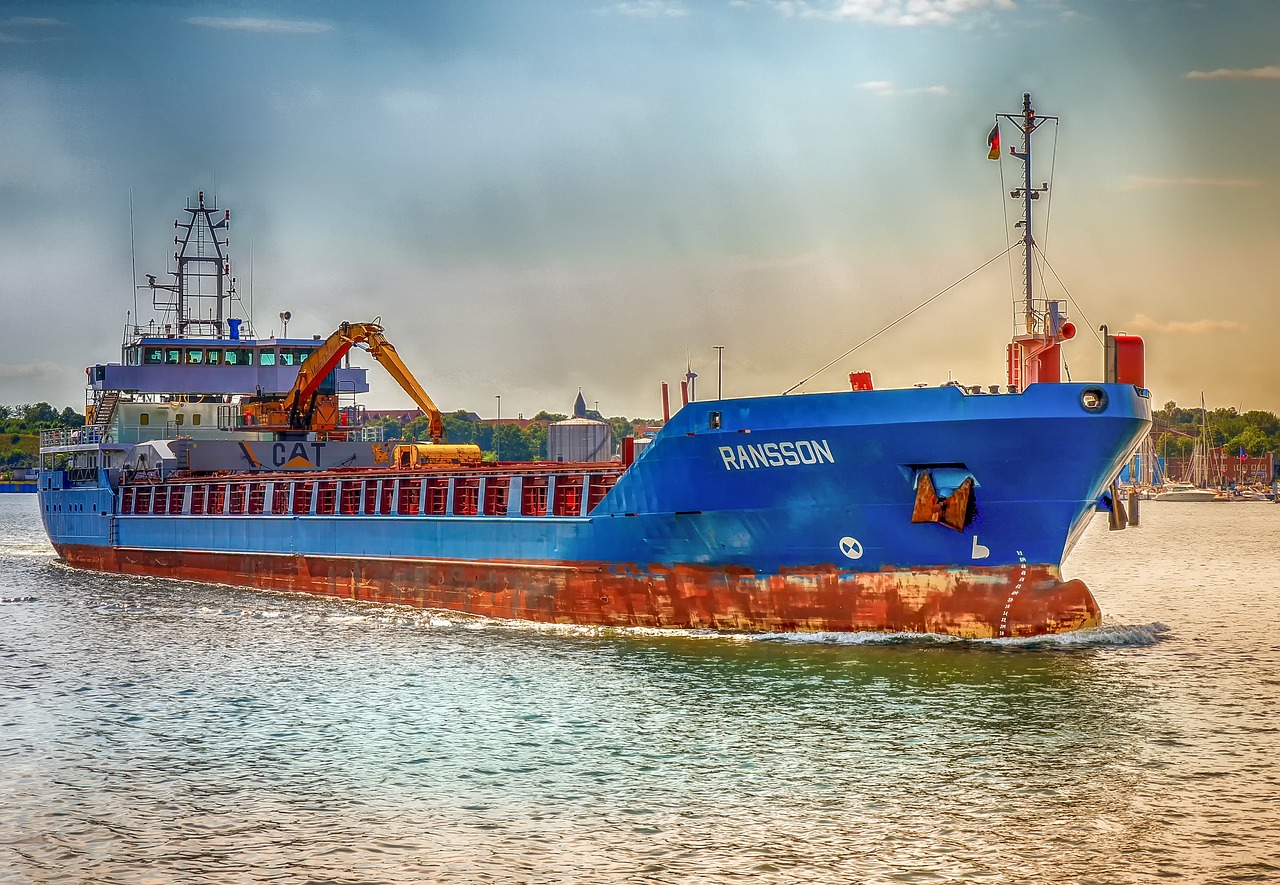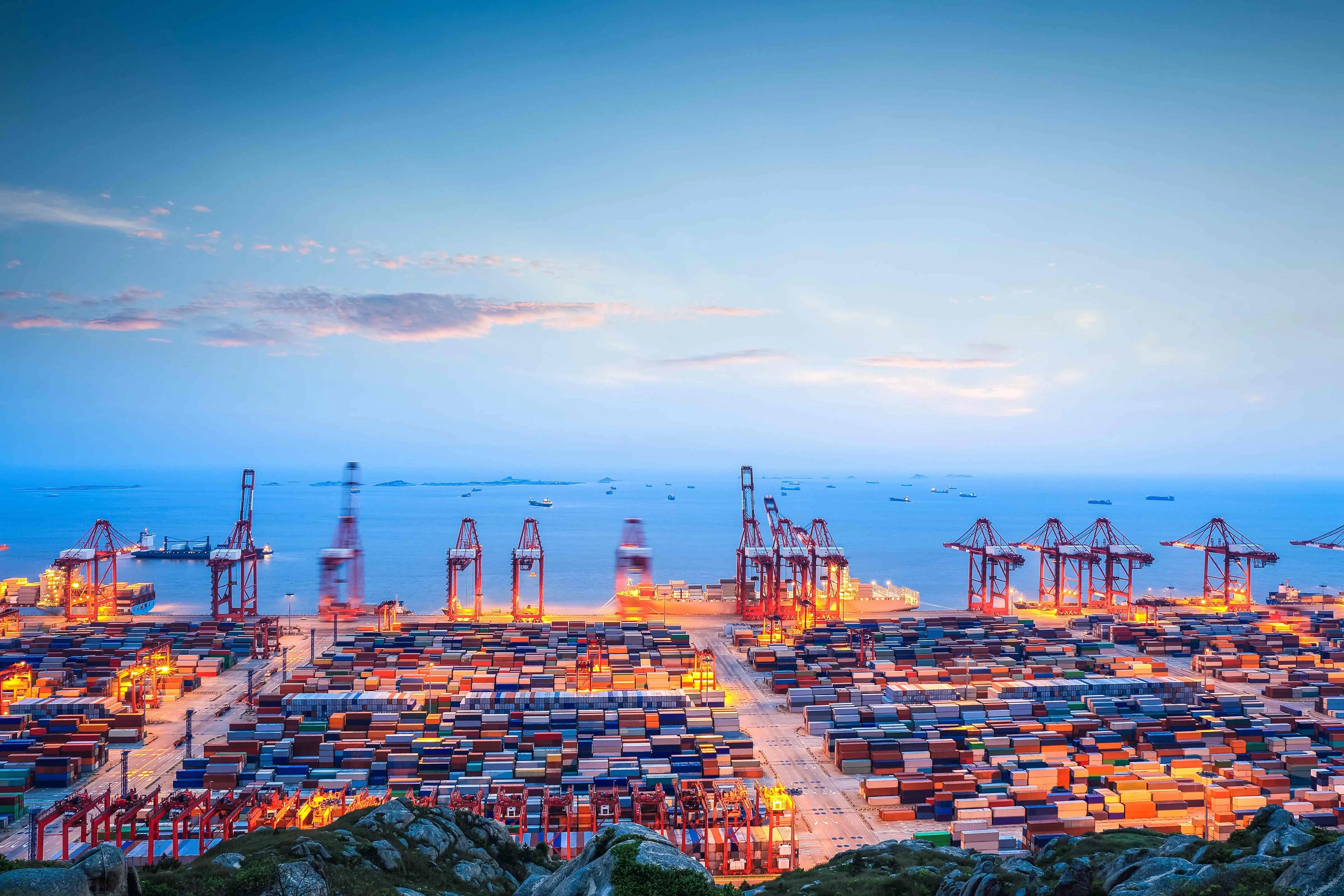How the shipping market will shuffle in 2025

The ocean freight market is undergoing a pivotal transformation, driven by emerging trends that are reshaping its foundation. Digitalization has introduced smarter tools, enabling seamless operations and enhanced transparency. Sustainability efforts, such as decarbonization and alternative energy adoption, are redefining shipping practices to align with environmental goals. Geopolitical shifts continue to influence trade routes and supply chains, creating both challenges and opportunities. Companies like JUSDA, with their innovative logistics solutions and global expertise, are leading this evolution. Their focus on efficiency and growth positions them as a key player in navigating the complexities of the modern shipping landscape.
Key Takeaways
Embrace digitalization: Leverage platforms like JUSDA’s JusLink to enhance visibility and streamline shipping processes, ensuring real-time tracking and data-driven decision-making.
Prioritize sustainability: Adopt alternative fuels and energy-efficient technologies to align with global decarbonization goals and comply with stricter environmental regulations.
Utilize AI and automation: Implement AI tools for inventory management and predictive analytics to optimize shipping routes and reduce operational delays.
Stay adaptable to geopolitical changes: Monitor global trade dynamics and be prepared to adjust logistics strategies to navigate disruptions caused by geopolitical tensions.
Invest in blockchain technology: Enhance transparency and security in shipping operations by utilizing blockchain for immutable transaction records and smart contracts.
Prepare for regulatory shifts: Stay informed about upcoming international and regional regulations to ensure compliance and leverage opportunities for innovation.
Focus on regionalization: Explore nearshoring and reshoring strategies to build resilient supply chains that can better withstand global disruptions.
Technological Advancements in the Ocean Freight Market

The ocean freight market is witnessing a technological revolution that is reshaping its operations and driving efficiency.
The Role of Artificial Intelligence and Automation
Artificial intelligence (AI) and automation are redefining how the shipping industry operates. AI tools provide real-time inventory tracking, predictive analytics, and demand forecasting. These capabilities allow companies to minimize delays, optimize shipment routes, and manage inventory more effectively. Machine learning algorithms predict market fluctuations, helping businesses remain agile in the face of rising costs and shifting trade policies.
Automation enhances operational efficiency by streamlining repetitive tasks. Automated cranes and robotic systems at ports accelerate cargo handling, reducing turnaround times. Additionally, AI-powered systems optimize vessel performance by analyzing data from IoT sensors, which helps reduce fuel consumption and environmental impact. These advancements position the ocean freight market for significant growth by improving reliability and cost-effectiveness.
Blockchain for Transparency and Security
Blockchain technology is transforming logistics by enhancing transparency and security in the shipping process. This decentralized ledger system ensures that all transactions are immutable and traceable, reducing the risk of fraud and errors. Blockchain enables seamless collaboration among stakeholders, including shippers, carriers, and customs authorities.
Smart contracts, powered by blockchain, automate payment processes and ensure compliance with trade agreements. This reduces administrative burdens and accelerates transaction times. By adopting blockchain, the ocean freight market can build trust among global partners and improve supply chain visibility. These benefits make blockchain a cornerstone of modern logistics strategies.
Digitalization of Shipping Processes with JUSDA’s JusLink Platform
Digitalization is a key driver of efficiency in the ocean freight market. JUSDA’s JusLink platform exemplifies how digital tools can revolutionize shipping processes. This intelligent supply chain platform integrates IoT, cloud computing, and big data to provide real-time visibility and collaboration across the supply chain.
JusLink simplifies complex logistics operations by offering end-to-end solutions. It enables stakeholders to monitor shipments, track inventory, and analyze performance metrics in real time. This level of transparency empowers businesses to make informed decisions and adapt to market trends swiftly. By leveraging JusLink, JUSDA demonstrates its commitment to innovation and positions itself as a leader in the global logistics landscape.
Sustainability and Green Shipping Trends

The ocean freight industry is embracing sustainability as a core principle, driven by environmental concerns and regulatory pressures.
Decarbonization Efforts in the Ocean Freight Industry
Decarbonization has become a top priority for the shipping industry. The International Maritime Organization (IMO) has set ambitious targets, including reducing greenhouse gas emissions by at least 50% by 2050. These goals are shaping the strategies of stakeholders across the ocean freight market. Companies are investing in energy-efficient vessels, optimizing routes, and leveraging advanced technologies to minimize emissions.
A phased reduction in the greenhouse gas intensity of energy used by ships is underway. This initiative includes the adoption of cleaner propulsion systems and the integration of IoT sensors to monitor fuel consumption. The anticipated approval of a pollution charge in 2025 is expected to further accelerate these efforts. By prioritizing decarbonization, the industry is not only addressing environmental challenges but also unlocking opportunities for sustainable growth.
Alternative Fuels and Renewable Energy in Shipping
The shift toward alternative fuels is transforming the logistics landscape. Low-carbon and zero-carbon fuels, such as liquefied natural gas (LNG), biofuels, and hydrogen, are gaining traction as viable options for reducing emissions. The European Union’s FuelEU Maritime Regulation is playing a pivotal role in increasing the adoption of these fuels within the maritime sector.
Renewable energy sources, including wind and solar power, are also being integrated into shipping operations. Wind-assisted propulsion systems and solar panels on vessels are helping reduce reliance on traditional fossil fuels. These innovations are not only enhancing environmental performance but also contributing to cost savings and operational efficiency. As the availability of alternative fuels grows, the ocean freight industry is poised to achieve significant progress in its sustainability journey.
Compliance with Stricter Environmental Regulations
Stricter environmental regulations are reshaping the global shipping industry. The IMO’s 2020 sulfur cap marked a significant milestone, limiting the sulfur content in marine fuels to 0.5%. This regulation has driven the adoption of cleaner fuels and exhaust gas cleaning systems. Regional policies, such as California’s Advanced Clean Trucks (ACT) regulation and the EU’s Monitoring, Reporting, and Verification (MRV) system, are further influencing compliance efforts.
The introduction of a global carbon levy and the enforcement of pollution charges are expected to gain momentum by 2025.
Market Dynamics Shaping the Ocean Freight Market
The ocean freight market in 2025 will experience significant shifts due to evolving supply and demand dynamics, geopolitical influences, and changing trade routes.
Changing Trade Routes and Supply Chains
Global trade routes are undergoing a transformation driven by environmental policies, geopolitical events, and natural disruptions. For instance, droughts affecting the Panama Canal and conflicts near the Suez Canal have already disrupted shipping timelines. These events highlight the vulnerability of traditional trade routes and the need for alternative pathways.
Shippers are increasingly exploring options like Arctic routes, which offer shorter transit times but come with environmental concerns. Additionally, regionalization of supply chains is gaining traction as companies seek to reduce reliance on long-haul routes. This shift toward nearshoring and reshoring strategies aims to mitigate risks and enhance supply chain resilience. By adapting to these changes, businesses can maintain operational efficiency and ensure the continuity of global trade.
Demand-Supply Imbalances in Ocean Freight
The ocean freight market faces persistent demand-supply imbalances, exacerbated by fluctuating global demand and capacity constraints. Analysts predict that freight rates will remain elevated in 2025 due to these imbalances. Higher transportation costs, driven by increased fuel prices and regulatory compliance, will further strain the industry.
Businesses are responding to these challenges by relying more on expedited shipping services to address inventory shortages and avoid product backorders. This approach helps maintain customer satisfaction and brand loyalty despite market volatility. However, the rising costs associated with expedited services may compel companies to pass these expenses onto consumers, impacting retail prices. Addressing these imbalances requires innovative solutions and strategic planning to balance growth with cost management.
Geopolitical Tensions and Their Impact on Global Shipping
Geopolitical tensions continue to shape the ocean freight market, influencing trade policies and creating uncertainties.
Retaliatory tariffs and protectionist policies are also driving shifts in global trade patterns. Businesses are increasingly adopting flexible logistics solutions to navigate these challenges. By leveraging advanced technologies and real-time data analytics, companies can adapt to geopolitical risks and maintain their competitive edge. The ability to anticipate and respond to these disruptions will play a crucial role in shaping the future of global shipping.
Regulatory Changes and Their Implications for Ocean Freight
The regulatory landscape in the ocean freight market is evolving rapidly, with new international and regional policies reshaping the industry's framework.
Upcoming International Shipping Regulations
The International Maritime Organization (IMO) continues to spearhead efforts to reduce the environmental impact of shipping. By 2025, stricter regulations will target greenhouse gas emissions and fuel efficiency. The IMO's goal to cut greenhouse gas emissions by 50% by 2050, compared to 2008 levels, has already prompted significant changes in vessel design and fuel usage. Shipowners are adopting low-sulfur fuels and installing scrubbers to comply with these mandates.
A global carbon levy is expected to gain traction, incentivizing the adoption of cleaner technologies. This levy will likely increase shipping costs, compelling companies to invest in energy-efficient solutions. Enhanced frameworks for monitoring and reporting emissions will also become mandatory, ensuring transparency and accountability across the supply chain. These measures will not only reduce environmental harm but also drive innovation and growth within the industry.
Regional Policies and Their Global Impact
Regional regulations are playing a pivotal role in shaping the global shipping landscape. The European Union's FuelEU Maritime Regulation is accelerating the adoption of alternative fuels, such as liquefied natural gas (LNG) and hydrogen. These policies aim to align regional practices with international decarbonization goals. Similarly, California's Advanced Clean Trucks (ACT) regulation is influencing shipping operations by promoting cleaner transportation methods.
The fragmentation of the dry bulk freight market is an anticipated outcome of these regional policies. Varying compliance requirements across regions create challenges for shipowners, who must navigate a complex web of standards. Poor data organization and inconsistent reporting further complicate decision-making processes. However, companies that embrace digital tools and data analytics can streamline compliance efforts and mitigate freight rate fluctuations caused by regulatory disparities.
Regional policies also impact freight rates by influencing supply and demand dynamics.
Challenges and Opportunities in the Ocean Freight Market
The ocean freight market in 2025 will face a mix of challenges and opportunities, driven by evolving trends and shifting dynamics.
Key Challenges Facing the Industry
The ocean freight industry continues to grapple with significant challenges that test its adaptability and efficiency. One of the most pressing issues is the persistent demand-supply imbalance. Fluctuating global demand, coupled with capacity constraints, has led to elevated freight rates. Drewry Analysts highlight that transportation costs are expected to remain high due to geopolitical tensions and trade policy uncertainties. These factors create financial strain for businesses, forcing them to reassess their logistics strategies.
Geopolitical instability further complicates the landscape.
Environmental regulations also pose hurdles for the industry. Stricter compliance requirements, such as the International Maritime Organization’s (IMO) greenhouse gas reduction targets, demand significant investments in cleaner technologies and alternative fuels. While these measures promote sustainability, they also increase operational costs, particularly for smaller players in the market.
Lastly, the ongoing disruptions in global supply chains have amplified the need for agility. Natural events, such as droughts affecting key canals, further extend transit time and delay shipments. Businesses must adopt innovative solutions to mitigate these delays and maintain customer satisfaction.
Emerging Opportunities for Growth with JUSDA’s Solutions
Despite these challenges, the ocean freight market presents numerous opportunities for growth. Companies that embrace innovation and sustainability can position themselves as leaders in the evolving logistics landscape. JUSDA exemplifies this approach by offering cutting-edge solutions tailored to the needs of modern businesses.
JUSDA’s JusLink platform stands out as a game-changer in the industry. By integrating IoT, cloud computing, and big data, this intelligent supply chain platform enhances visibility and collaboration. Businesses can monitor shipments in real time, optimize transit time, and adapt swiftly to market changes. This level of transparency not only reduces inefficiencies but also fosters trust among stakeholders.
The shift toward alternative fuels and renewable energy opens new avenues for growth. JUSDA’s commitment to sustainability aligns with global decarbonization goals, enabling clients to comply with environmental regulations while reducing costs. By leveraging advanced technologies, JUSDA helps businesses transition to greener practices without compromising efficiency.
Additionally, JUSDA’s extensive network and expertise in logistics provide a competitive edge. With over 155 service points worldwide, the company ensures seamless operations across air, land, sea, and rail. This comprehensive approach minimizes transit time and enhances reliability, allowing businesses to meet customer expectations consistently.
The rise of regionalization in supply chains also creates opportunities for growth. As companies move toward nearshoring and reshoring strategies, JUSDA’s tailored solutions support these transitions effectively. By addressing specific regional needs, JUSDA empowers businesses to build resilient supply chains and capitalize on emerging markets.

JUSDA Solutions
To provide you with professional solutions and quotations.
The ocean freight market is on the brink of transformative change, with forecasts highlighting the impact of technology, sustainability, and regulatory shifts. These trends will redefine shipping operations, creating new opportunities for global logistics. Companies like JUSDA are leveraging innovation to address challenges and drive projected growth rates. By adopting advanced solutions and aligning with future predictions, businesses can navigate disruptions effectively. Ocean alliances and shipping alliances will play a pivotal role in fostering collaboration and resilience. Embracing these changes ensures stakeholders remain competitive in a rapidly evolving market.
FAQ
What services does JUSDA offer?
JUSDA provides a comprehensive range of logistics and supply chain management solutions. These include air, land, sea, and rail transport, as well as value-added services like cloud warehousing, consolidation, and foreign trade platforms. The Freight Department manages all aspects of freight charging, shares monthly freight rates with customers, and addresses any customer queries.
What makes JUSDA’s JusLink platform unique?
JusLink stands out as an intelligent supply chain platform that integrates advanced technologies like IoT, cloud computing, and big data. It provides end-to-end visibility, enabling businesses to track inventory, monitor shipments, and analyze performance metrics in real time. This innovation enhances decision-making and fosters collaboration across the supply chain.
How does JUSDA support businesses in adapting to changing trade routes?
JUSDA assists businesses in navigating shifting trade routes by offering flexible logistics solutions. The company’s expertise in regionalization and nearshoring strategies helps clients build resilient supply chains. By leveraging its global network, JUSDA ensures seamless operations and minimizes disruptions caused by geopolitical or environmental factors.
See Also
Exploring 2024 Innovations in Sea Freight Logistics
Five Key Trends Shaping Supply Chain Efficiency Ahead
In-Depth Look at LTL Freight's Future Developments
